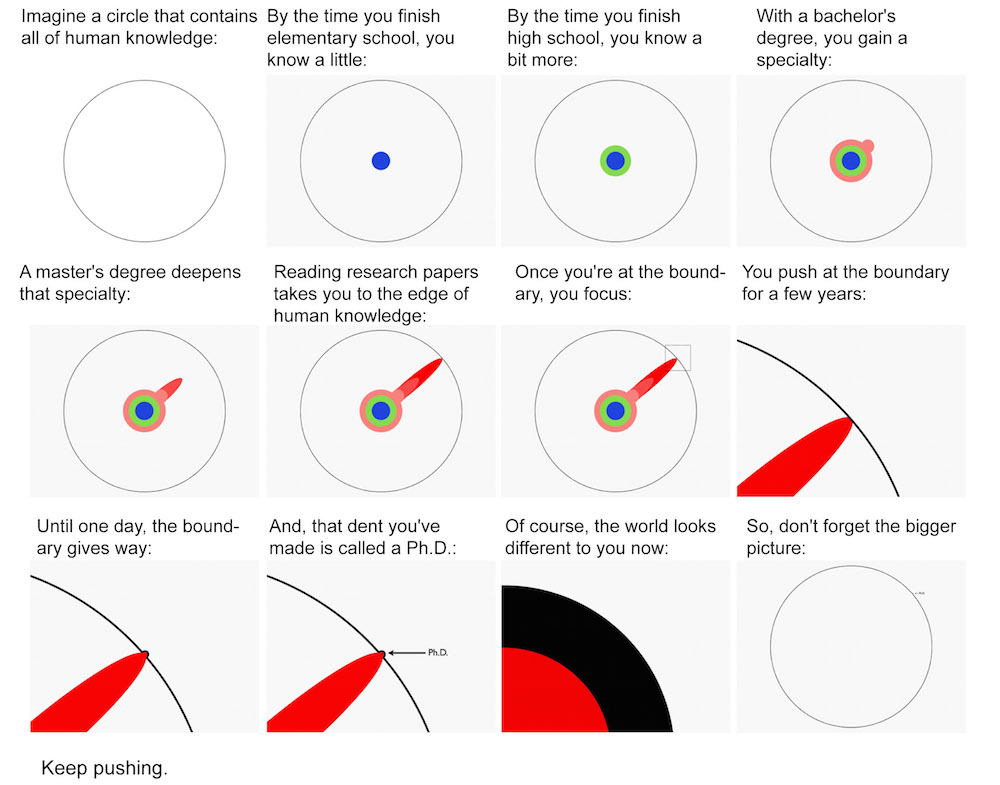
Matthew Might, a computer science professor at the University of Utah, writes: “Every fall, I explain to a fresh batch of Ph.D. students what a Ph.D. is. It’s hard to describe it in words. So, I use pictures.” In his Illustrated Guide to the PhD, Professor Might creates a visual narrative that puts the daunting degree into perspective. Anyone who has already pursued a Ph.D. will see the wisdom in it. (Or at least I did.) And young, aspiring academics would be wise to pay it heed.
You can see a condensed version of the the illustrated guide above. Or follow it in a larger format below.
Imagine a circle that contains all of human knowledge:
By the time you finish elementary school, you know a little:
By the time you finish high school, you know a bit more:
With a bachelor’s degree, you gain a specialty:
A master’s degree deepens that specialty:
Reading research papers takes you to the edge of human knowledge:
Once you’re at the boundary, you focus:
You push at the boundary for a few years:
Until one day, the boundary gives way:
And, that dent you’ve made is called a Ph.D.:
Of course, the world looks different to you now:
So, don’t forget the bigger picture:
Keep pushing.
You can find Matt’s Illustrated Guide hosted on his web site. This guide/reality check is published under a Creative Commons License. You can also buy a print version for $6.50. The money goes to charity.
This guide first appeared on our site in 2012. But, with all of the wisdom it packs into a small space, it seemed worth bringing back.



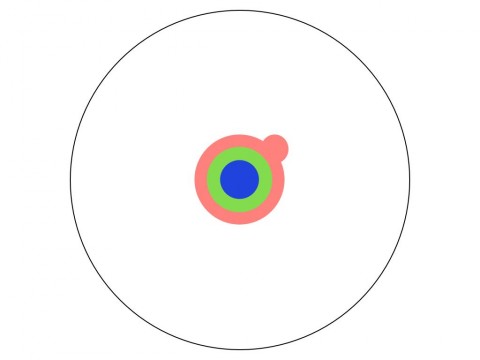
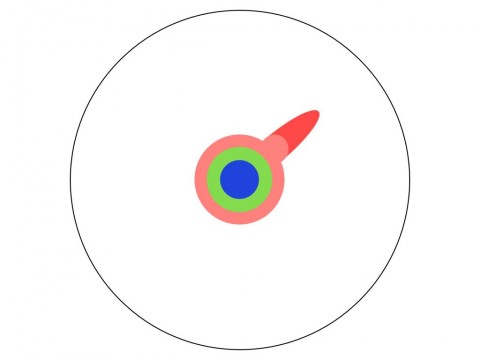
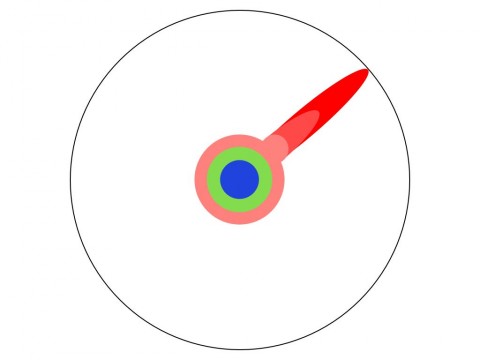
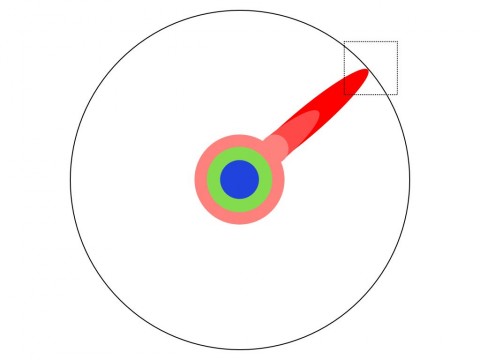


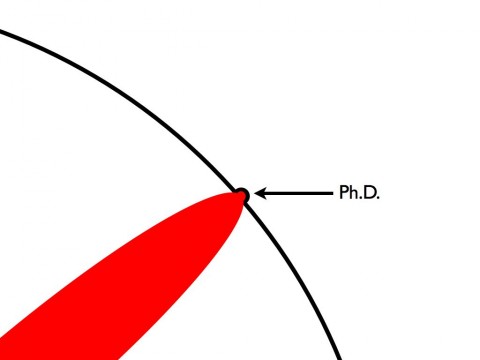




I always knew a Ph.D. was like the nipple on a big tit.
Ha! That’s funny. I was just commenting, “Imagine that‑a totally phallic representation of how to complete a Ph.D.
Reminds me of this: https://www.youtube.com/watch?v=LNIbhRufPQI
I did a Master’s in History and stopped there. The thing that used to bother me about some of my Profs was that if I asked a question that popped into my head based upon what we were looking at, often the answer would be “sorry, not my area.” While I get professional sub-categories and such, sometimes it feels as if a PhD is narrowing the focus a little too far. I think there is, however, a difference between the Humanities and the Sciences in this.
It’s a penis trying to hatch from an egg? This person has forgotten biology.
Look at it this way… they’re honest about what they don’t know… you’ll get many less educated people will give you an answer that may or may not be accurate at all.
It depends on the topic. Any good academic from Science or Humanities will know the limitations of their knowledge; know when that they don’t know.
Also take it as an invitation to explore that topic yourself.
I like this illustration. I have often tried to explain to parents and administrators why advanced degrees don’t necessarily translate to better high school teachers and this would have helped.
Came here from Philosophy Matters on FB
What a brilliant display of academic arrogance; there is no social brain to who’s expansion we contribute. That bubble starts anew with every birth and grows to the limits of its surroundings. If PhD’s dont realize that their goal in life is to enhance those surroundings for the greater growth of future bubbles then their doctorate is worthless because they have learned nothing.
Karen,
You were doing a Master’s and were unhappy because you failed to get an immediate answer to a question that popped into your head??
One of the biggest differences between the beginning of the educational process and the end is that nobody is spoon-feeding you any more towards the end. If the question matters then a library exists for you to research it (these days Wikipedia is often a good place to start to find relevant resources). If a Master’s didn’t teach you to find knowledge yourself, then it was worthless.
No, they haven’t. You only have a dirty mind.
I had a double Ph.D.mentor once advise that High School students don’t know that they don’t know shit. Undergrads don’t know shit. Masters Graduates have an idea that they don’t know shit in general. Ph.D.‘s know how to research in specifics how much shit they haven’t begun to know in a very isolated subset of all the shit to be known. #invertedtriangle #hourglassofunderstanding #X
A friend has a saying: getting a PhD is about learning more and more about less and less until you know almost everything about almost nothing.
Oh, my flaming Aunt .… Is this what I spent 30 years teaching … or were they not paying attention most of the time?